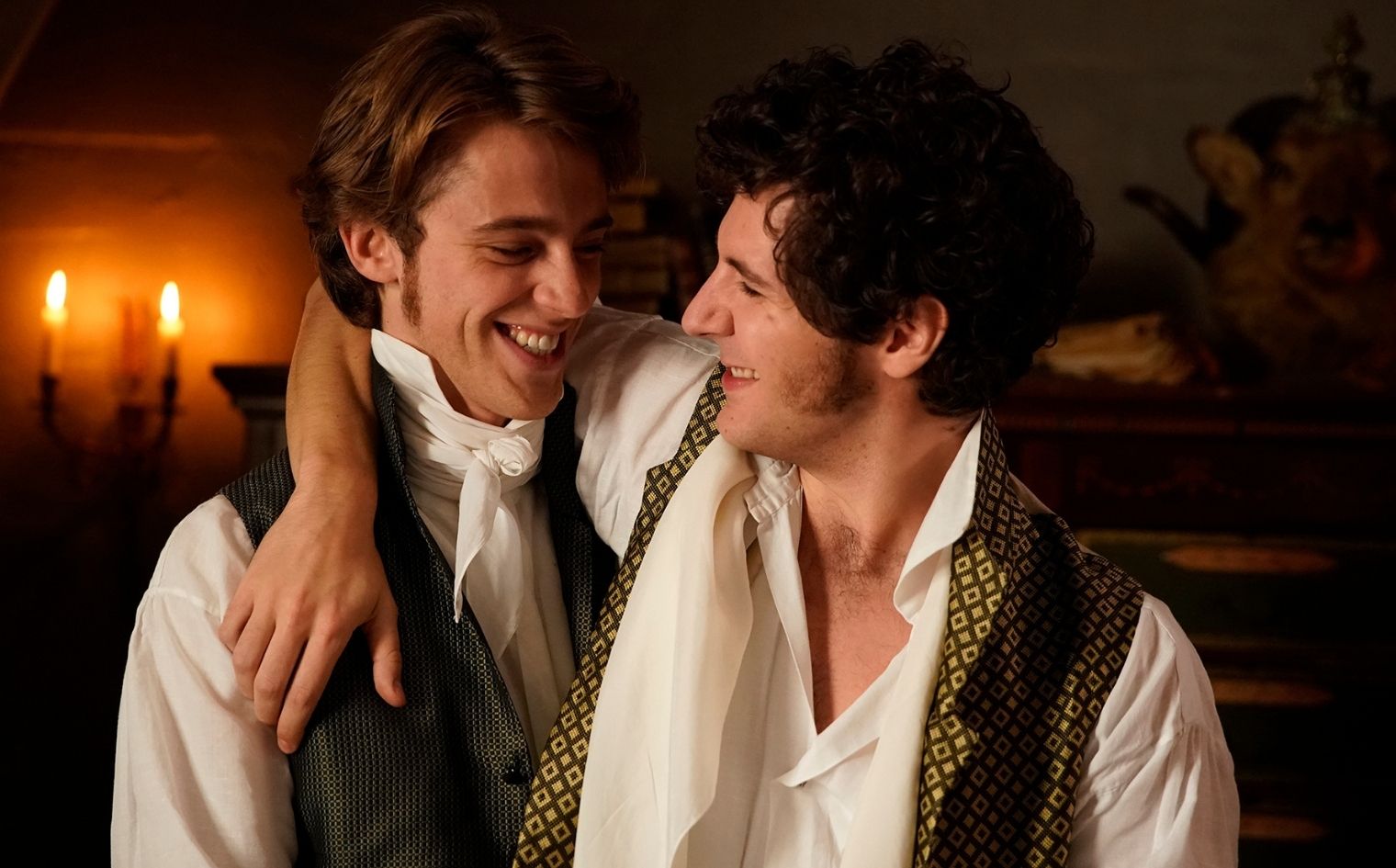Around the inception of Cahiers du Cinéma François Truffaut coined a term, “cinéma de papa,” to describe what he and cohorts sought to rebel against: the dominantly dull strand of French film in the ’40s and ’50s that often included costume dramas, esteemed literary adaptations, adoring biopics, etc. To this day it remains a useful term for describing certain films that inspire the sense it won’t surprise in any fashion.
In the case of Lost Illusions––which swept this year’s Caesar awards, as if the amount of prestige on-hand between the source material and luminary cast didn’t make it an automatic shoo-in––it’s a little sad having to apply this term. Despite its source author’s vaunted (or snooty) standing in literary history, it can’t help seem a disservice that a Balzac adaptation serves as such a dead object: plenty costumes and extras, no real stylistic brio to at least make the whole white elephantine package go down a little easier. If I’ve only read two of the legendary writer’s books, and thus any authority on its representation of his running themes and such cannot be spoken definitively, it’s still apparent from every moment that greater ideas are poking through the edge of, but not felt, in such a dull product.
At the center of our sprawling narrative is Lucien de Rubempré (Benjamin Voisin), an aspiring young poet from the French countryside who moves to Paris to pursue a career in the field, until—by almost a stroke of dumb luck—he finds himself falling into a journalist role, and a scene of larger-than-life personalities, including fellow writer (and Balzac stand-in) Nathan (Xavier Dolan, appropriately smug) and publisher Dauriat (Gérard Depardieu, boisterous). Entering a tense 19th-century political climate of a city divided between liberals and royalists, Lucien quickly finds himself amassing a strong reputation in the city’s arts scene for articles either praising or damning contemporary theatre, all based on where the bribe money is coming from. But the facade can only last so long before the lies and hubris catch up and eventually tear him down from this new standing.
A good tale clearly relevant to the social-media age of clout-chasing and strict political binaries (with enough nods to “fake news” and the possibility of a banker entering politics so everyone can understand), there’s still the nagging feeling something’s absent. By condensing a 600-page-plus epic into a two-and-a-half-hour film, the sense of thought and detail that immortalizes Balzac isn’t translated.
The problem doesn’t seem fixable with a longer miniseries adaptation. It rather comes down to a fundamental issue: literal-mindedness, a sense of life missing from the proceedings. There’s no muck to the Paris it depicts, no sting to the words cast behind people’s back at hoity-toity costume balls. If “the love of beauty” is what inspires Lucien in the first place to pursue poetry and a life in Paris, that running theme––and the corruption of which––should give Lost Illusions a kind of philosophical tragedy. Yet the natural endpoint of this prestige-picture simplification is a character eventually falling to a deadly bout of tuberculosis. Not much of a human comedy after all.
Lost Illusions opens in theaters June 10.

